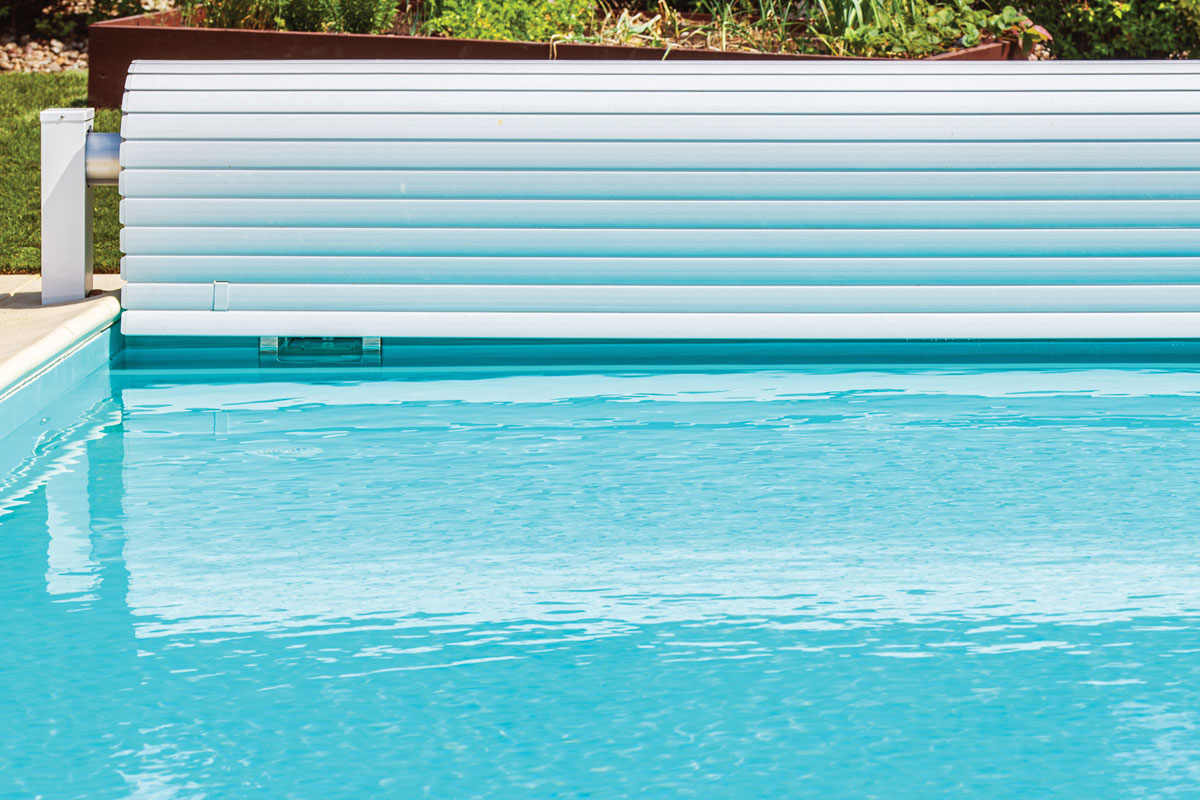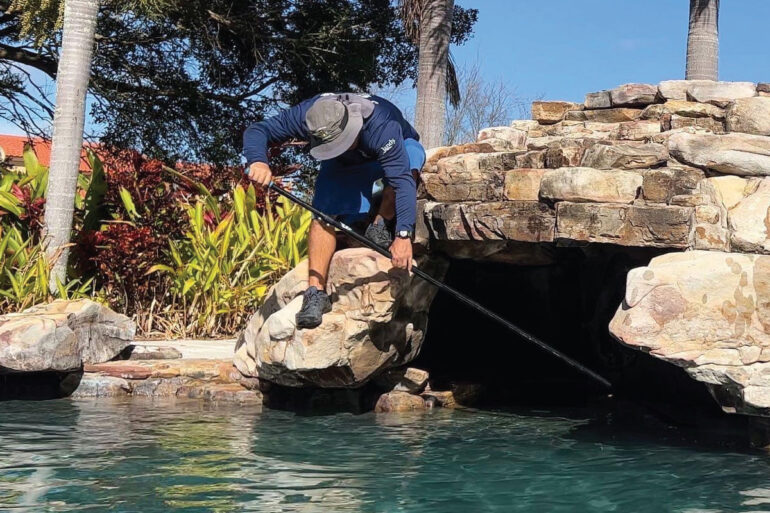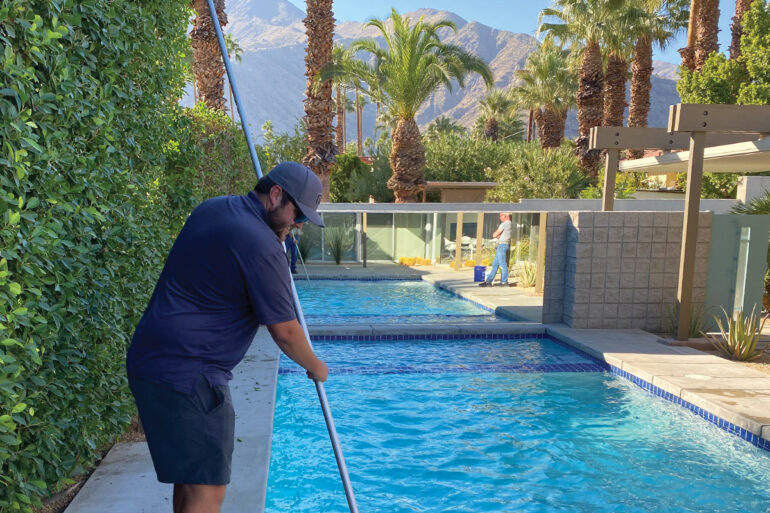Closing for the Season

Tips and tricks for pool owners and companies closing pools
As winter approaches, pool owners and professionals face the essential task of closing pools to safeguard them from potential damage. Proper winterizing can help protect a pool owner’s investment, safeguard a pool professional’s business and set the stage for a seamless springtime reopening.
Rob Thomas, the owner of AquaVida Pools in Evansville, Indiana, says the top priority is getting water out of the pool lines. Along with removing water from where it might cause damage, AquaVida’s technicians prepare their customers’ pools for spring by evaluating each individually.
“We look at the pool for what it is,” Thomas says, elaborating that they tailor the chemicals to the pool type, ensuring customers get the most value. One example of this is when the chlorine level of a pool is high at closing.
“People will close the covers, have the pool running, the kids go back to school, the temperatures are cooler and they don’t turn down their salt system, so it just continues to make chlorine,” Thomas says. “If the chlorine level is really high at closing, we won’t add any additional shock to make sure we’re not further raising their chlorine level.”
Though some pool owners try to save money by closing their pool themselves, Thomas recommends reiterating to owners that it’s wiser to seek professional help.
“If you leave water in the line or something doesn’t get sealed off properly, you’re going to have damage, and that damage can be pretty costly,” Thomas says.
Andy DiFronzo, a pool service technician from Great Valley Pool Service in Frazer, Pennsylvania, emphasizes the danger of missing a step during closing, which an owner would be more likely to do than a professional.
“The last thing you want is ice shattering the lines,” he cautions, reminding both pool professionals and owners that when a pool gets water damage from cracked lines, there are only expensive solutions available such as running new lines or replumbing the whole section.
Thomas trains his technicians to be thorough, and he finds it helpful to say each step out loud and carefully document every action taken.
“Closings are a liability,” Thomas says. “If you don’t train your staff properly and your service technicians get sloppy or lazy, or you don’t have a documentation system that shows what you did, you can be held liable.”
Thomas recommends using digital tools to ensure technicians perform their duties adequately and to track important information, such as chemical readings and any issues encountered during closing. He also advises business owners to place their closing supply orders early to avoid potential delays or shortages.
DiFronzo recommends reminding pool owners there are tasks they can complete to remain vigilant during the winter season, even while leaving the closing to the professionals.
“Monitoring the pH is good to do in the offseason, especially if the customer has fresh plaster that is still curing,” DiFronzo says. “If the pH rises and rises, your calcium will come out of the plaster and cause scaling.”
DiFronzo also suggests having owners monitor the weight on the pool cover, using a cover pump to prevent water from accumulating and potentially causing tile and coping issues.
“If it snows, customers should be proactive and either brush, broom or shovel the snow weight off of the cover,” DiFronzo says. “You want to avoid any kind of weight on that cover.”
Together, pool owners and pros can protect pools from damage and create a hassle-free reopening in the spring. By encouraging pool owners to invest in professional assistance and be proactive about pool care, the pool can remain well-maintained and functional season after season.






